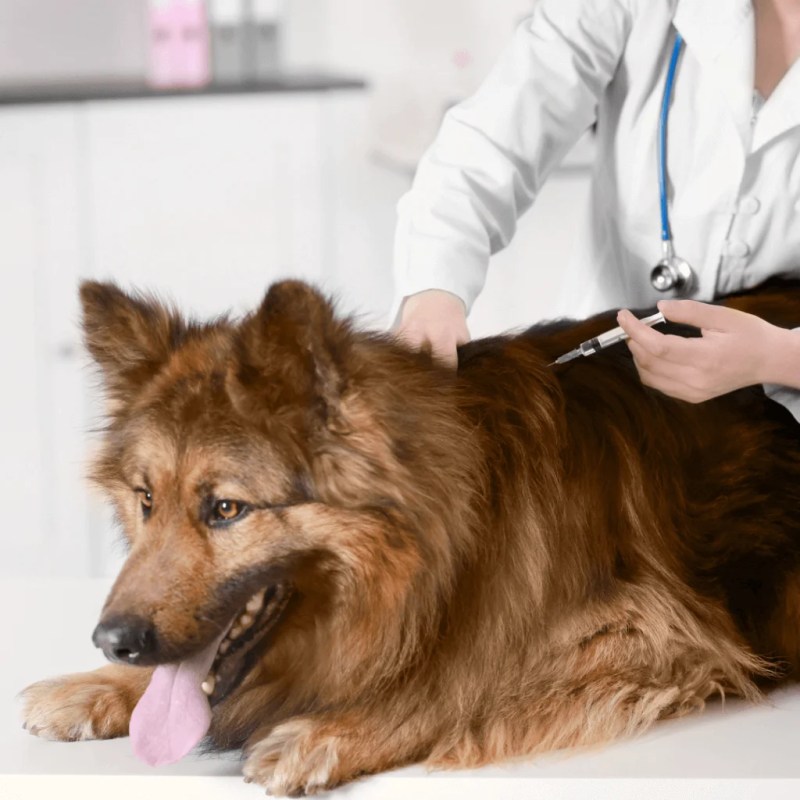Where Can I Get My Dog Vaccinated – Interested in some ways you can take care of your pet and promote a healthy lifestyle? Read more!
Thank you for vaccinating your dog or checking to see if his vaccinations are up to date! Below you will find all the information you need to know about properly protecting your dog from disease and germs!
Where Can I Get My Dog Vaccinated

Each session includes a home visit fee (prices may vary depending on your area) as well as consultation and physical examination fees. Once multiple dog visits or first vaccinations are scheduled, referral fees are reduced for subsequent visits! Vaccination prices are the same every time to help keep your pet safe!
Pet Rabies Shots And How Long They Last
If any of this is unclear or if you have any other questions, please don’t hesitate to contact us!
Because we are a house call service, we come to your home! Of course we don’t do surgery, however, we work with all the clinics in town and can provide them with your vaccination records if you want to do this part of your pet’s care from the comfort of your own home 🙂
Microprocessing involves inserting a small data device (the size of a pea!) under your pet’s skin. Veterinary clinics and animal shelters have scanners that you can use to pet animals, and when your pet is scanned you will receive a unique ID number linked to your information. You can contact and reconnect with your lost pets! Chip placement is almost always good, and we’ve tried to help with this even more by wearing a 24-hour pet watch.
It is an allergic disease that affects all warm-blooded animals, including cats, dogs, and humans. It affects the nervous system and is often the first sign of a dog’s major behavioral changes, such as restlessness, anger, and fear. Wild Animal Bite Transmission The rabies vaccine is very effective in preventing transmission and is recommended for all schools.
Study Shows Vaccine Hesitancy Among Pet Owners
Canker sores are a systemic, contagious, allergic disease characterized by fever, runny nose, cough and vomiting, convulsions, or seizures. They can be carried by wild animals such as foxes, foxes, and crabs
It is responsible for the development of colon cancer, an infectious disease that affects the liver and other parts of the body. CAV-2 is the cause of canine strep throat, and dogs under one year of age are susceptible. Symptoms of CAV-1 infection include fever, loss of appetite, fatigue, “hepatitis blue eyes,” vomiting, diarrhea, and neurological symptoms.
Along with other viruses and bacteria that cause the common cold, whooping cough, CPV is a component of the bacterium Streptococcus pneumoniae, also known as “whooping cough.” The main clinical symptom is a dry, cough

Parboviral enteritis is an acute, fatal infection of the immune system and gastrointestinal tract, but it increases the risk of multiple infections. Although dogs of all ages can be infected, dogs are at greater risk. Symptoms include vomiting, blood, fever and dehydration. Parvovirus is extremely dangerous in dogs, causing dehydration, multiple organ failure and death. Vaccinated dogs are highly protective against the virus, and DA2PPV is recommended for all DOGS
Can I Give My Dog Shots At Home Or Should I Take Him To The Vet?
1. Bordetella: Also known as “whooping cough.” Bacterial infections are one of the many diseases that can cause clinical signs of respiratory disease in dogs. This vaccination is required for most dogs and cats and is recommended for dogs that live with other dogs.
2. Lymphoma: Also known as borreliosis, it is caused by the bacterium Borrelia burgdorferi and is spread by the black-footed tick (deer tick). The disease affects both animals and humans. Symptoms include prolonged fever and loss of appetite, fatigue, and swollen lymph nodes. Neurological, cardiac, renal, and reproductive symptoms may also be seen. Untreated lymphoma can spread to the urinary (urinary) system and is often fatal if not treated properly.
3. Leptosporosis: A bacterial disease caused by bacteria that can survive in stagnant water for long periods of time. Animals and humans become infected by consuming contaminated food or water. The first symptoms are weakness, loss of appetite, vomiting, diarrhea, fever, fatigue, and mild conjunctivitis. Later symptoms include shortness of breath, increased thirst and urination, back pain, reluctance to move, and jaundice. Kidney failure and liver failure are side effects of this disease, which often occurs in interstitial pockets, and many dogs become infected when the disease is localized to one area. It also infects humans (zoonotic) and is spread through the urine of infected animals
Puppies are usually vaccinated every 3-4 weeks (starting at 6 weeks) until they are 14-16 weeks old. If your dog doesn’t start his series by 12 weeks, he’ll only have two chances to be vaccinated, but he can easily become infected before that time.
Preventing Unnecessary Over-vaccination In Dogs And Cats
Vaccination for an older dog is different than for a new dog, and your dog falls into one of three categories
For dogs over 16 weeks of age who have been vaccinated, but the time has passed, they can go outside or go to the kennel where they can interact with other dogs. They need two places:
Vaccination is for dogs over 16 weeks of age, dogs that have not been previously vaccinated, and those that are active outdoors. We need two places: vaccinations not only for us, but also for our dogs! Vaccination, hygiene, nutrition and a good environment are essential to ensure the health of our beloved canines. While there are no hard and fast rules about how often to vaccinate a dog, it’s good to know what vaccines are available to keep your dog safe.
:max_bytes(150000):strip_icc()/dog-vaccination-costs-2000-714dbb371ab4441a9bddb59c4efc49d5.jpg?strip=all)
Before non-core vaccinations and how often they should be given, let’s take a look at the core vaccines available to all dogs in Singapore.
Dog Vaccination Schedule: A Complete Guide
Core vaccines are “core” because they protect our dogs from the worst and most deadly diseases in Singapore.
For puppies, the first dose of the vaccine should be given at 6-8 weeks of age. Remember that vaccination before 8 weeks may be less effective, check with your doctor if you are not sure.
For older dogs, your dog should get a booster shot every year, so if your dog’s last vaccination was on March 20, 2022, the next vaccination is on March 20, 2023, etc.
If you do not want your dog to receive boosters every year, an off-brand booster can be discussed with your veterinarian who follows his own schedule. This menu will vary depending on the dog’s lifestyle and diet. These steps are important in determining whether your dog will be fit for the long term
Dog Vaccinations Cost: What You’ll Pay
These vaccines protect against canine distemper virus (DPV), canine parvovirus (CPV) and canine adenovirus (CAV). If CPV and CAV are spread outdoors or to other dogs, the virus is spread by touching the tissues of infected dogs.
Dogs under 20 months of age and vaccinated dogs of all ages are susceptible to the disease. Fortunately, vaccinated dogs are better taken care of!
Vaccination is necessary if your dog is exposed to a unique or dangerous environment, so check with your vet to see if this vaccine has affected your dog!

There are four diseases you can vaccinate your dog against: leptospirosis, distemper, canine infectious respiratory disease (CIRDC or whooping cough) and canine corona virus. However, there is no rabies in Singapore, so there is no need to vaccinate your dog against rabies! Also, for canine distemper, many veterinary organizations believe it is sufficient

